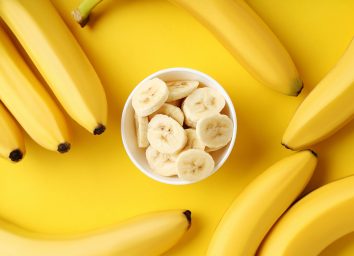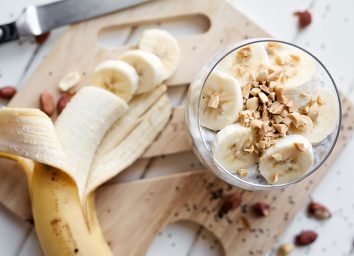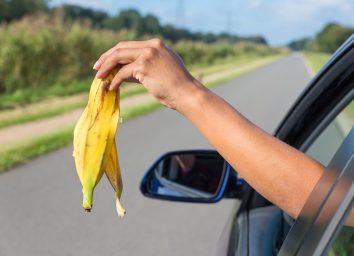Ways Eating Bananas Backfires, Say Experts
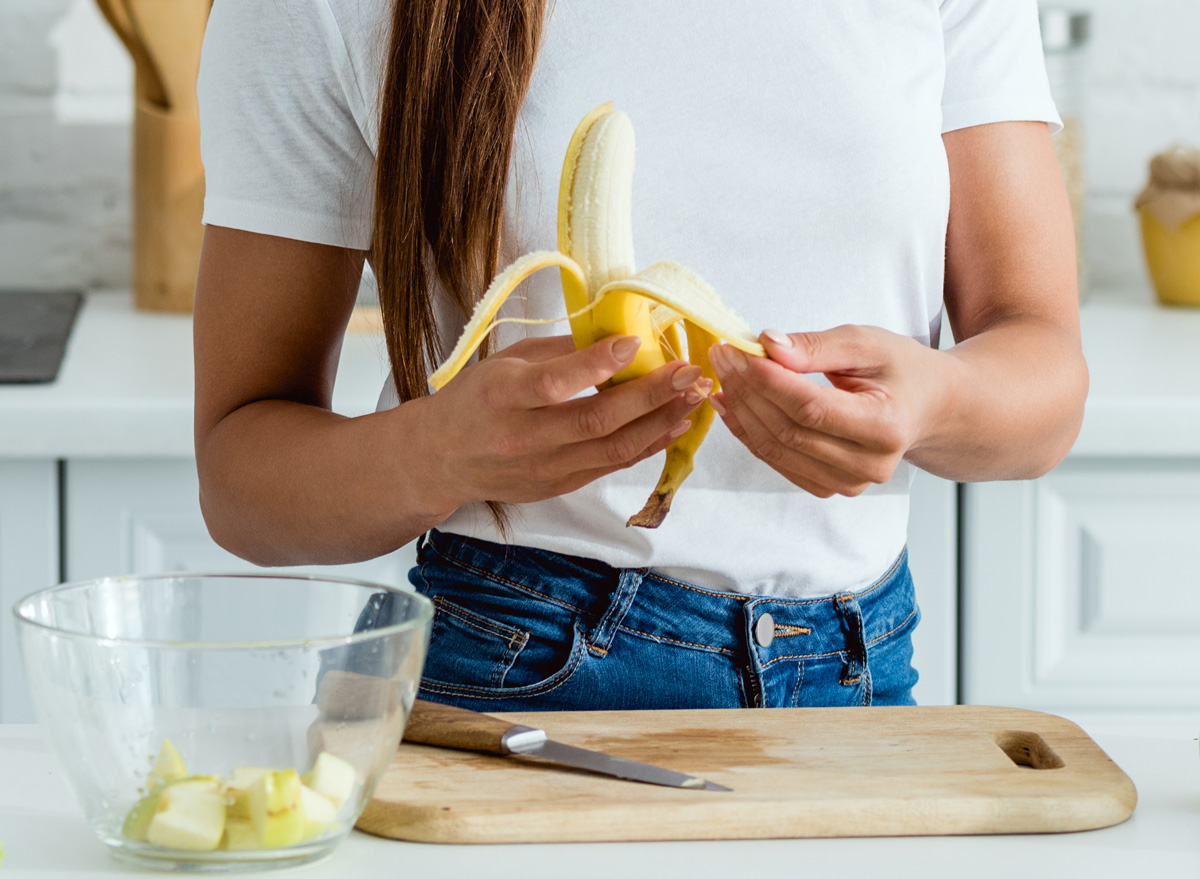
Bananas are the most popular fruit in the United States., with U.S. residents consuming an average of 13.9 pounds of bananas per year, according to the United States Department of Agriculture (USDA). While bananas may be a tasty and inexpensive way to fill up, there are some surprising negative side effects to eating bananas, as well. From your energy levels to your organ health, read on to discover the ways in which eating bananas can backfire. And if you want to makeover your diet, start with Eating Habits to Lose Abdominal Fat As You Age, Say Dietitians.
They may make you sleepier.

Relying on bananas to boost your energy levels may not work as well as you hope.
"One possible side effect of bananas is sleepiness," says Alexandra Soare, RD, a registered dietitian at Food on Mars.
"Bananas contain the protein tryptophan which later gets transformed into the sleep hormone melatonin," continues Soare, noting that, when consumed in excess, this may have negative effects on a person's sleep/wake cycle. And if you want to shake off that sluggishness, check out the 30 Best Foods That Give You All-Day Energy.
They may exacerbate digestive issues.

Individuals with irritable bowel syndrome (IBS) following a low-FODMAP diet might want to keep their banana consumption to a minimum.
"Ripe bananas with some brown spots may cause digestive issues for some following a low FODMAP diet," says Holly Klamer, MS, RDN, of My Crohn's and Colitis Team.
They may be dangerous for people with kidney disease.

If you have kidney disease, consuming too many bananas could put your health in danger. According to the American Kidney Fund, individuals with kidney disease may find themselves struggling with higher than normal potassium levels in their blood, as their kidneys don't effectively filter it out.
Considering that a single medium-sized banana contains approximately 11% of a person's RDA of potassium, individuals with kidney disease may dangerously increase their potassium levels if they're eating multiple bananas a day—in fact, a 2012 study published in the Journal of Athletic Training found that eating two bananas after a workout resulted in as much as a 5.8% increase in study subjects' serum potassium levels. And if you want to keep your kidneys healthy, steer clear of these Popular Diets That May Cause Damage to Your Kidneys, Science Says.
They may not be right for people who take beta-blockers.
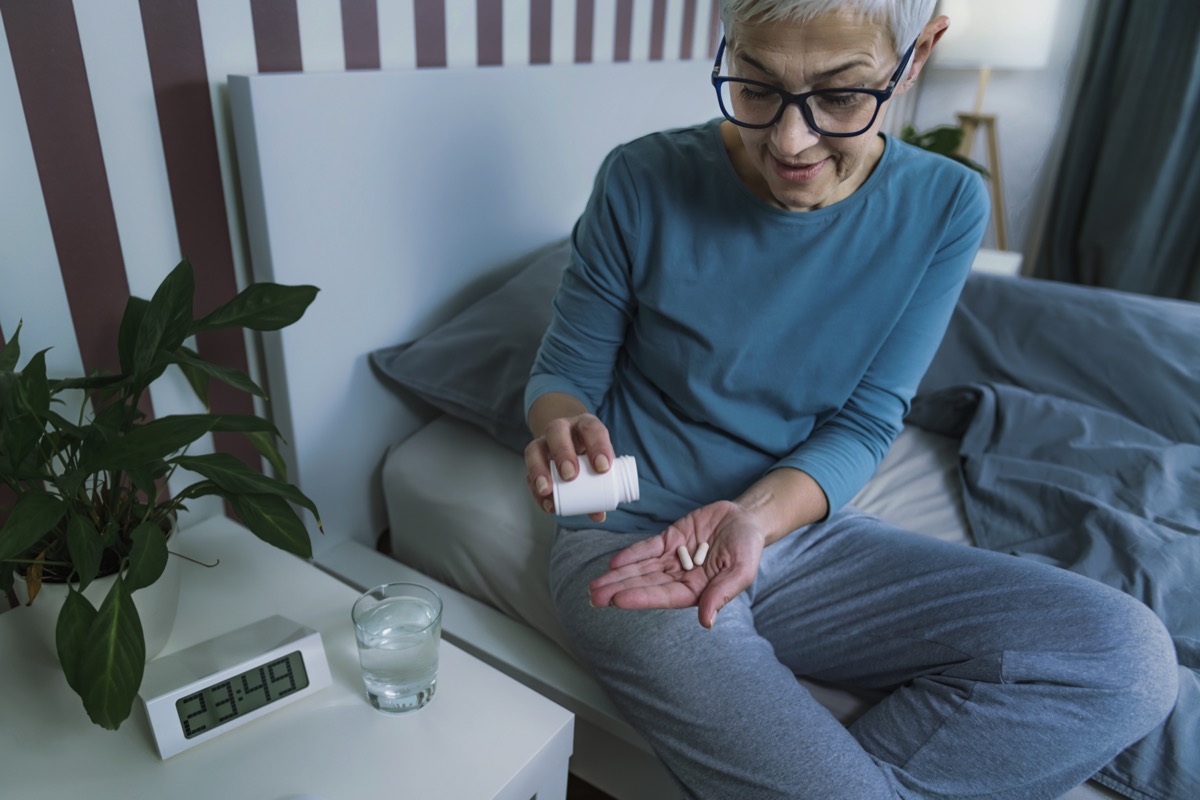
If you take beta-blockers, you might want to keep your banana intake to a minimum. According to a 2017 study published in the journal Hypertension, beta-blockers were found to increase the risk of high potassium, or hyperkalemia, by 13%. If left untreated, hyperkalemia can result in chest pain, heart palpitations, shortness of breath, and, in sudden onset cases, is considered a medical emergency, according to the National Kidney Foundation. Considering that a single banana can pack 517 milligrams of potassium, folks taking beta-blockers should talk to their doctors before making this fruit part of their regular routine.
For more food and health news delivered to your inbox, sign up for our newsletter!

